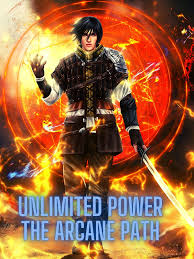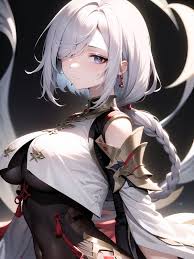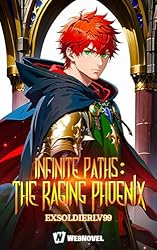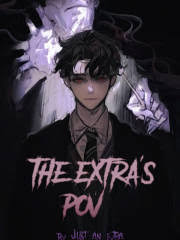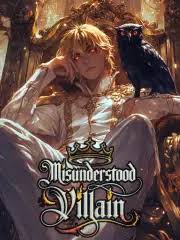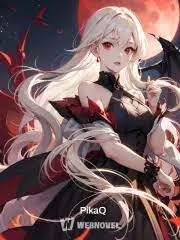The Story in 3 Sentences
A college student named Leon is thrust into a global apocalypse by a dragon’s sudden attack, only to awaken alone on a desolate island with a mysterious system that lets him convert mana into raw experience points .
His desperate struggle for survival and incremental power-ups evolves into a relentless, grinding odyssey across shattered continents and hostile planes, where every victory summons a deadlier foe, forcing him to master increasingly absurd and overpowered arcane skills .
He ultimately transcends his mortal limits to confront cosmic entities and the system’s creators themselves, securing a fragile peace not through sheer dominance, but by forging uneasy alliances with former enemies and reshaping the multiverse’s broken rules .
Why It Stands Out
1. The Grind is the Glory
This novel turns the classic “leveling up” trope into its beating heart and central drama. It doesn’t just acknowledge the grind; it romanticizes it, making Leon’s obsessive, solitary training montages on that godforsaken island the foundation of his legend. The satisfaction comes not from skipping steps, but from feeling every arduous point of strength, speed, and mana he painfully earns, turning statistical progression into visceral, emotional triumph.
2. Apocalypse as a Sandbox
While the world collapses under waves of ridiculous monsters, the story cleverly isolates its protagonist, transforming global doom into a personal, almost intimate challenge. Leon isn’t saving cities; he’s figuring out how to crack a coconut, build a bow, or freeze a bucket of water . This micro-focus on survival mechanics within a macro-apocalypse creates a unique, grounded tension that makes his eventual world-shaking power feel earned, not handed down.
3. System Shenanigans with Stakes
The “convert mana to XP” system is brilliantly simple yet endlessly exploitable, allowing for wildly creative and often hilarious power combinations. It’s not just a stat sheet; it’s a puzzle Leon must solve, leading to moments of genuine ingenuity. Crucially, the system has hidden depths and cosmic consequences, ensuring that even as Leon becomes absurdly powerful, the stakes escalate to match, preventing the narrative from becoming a hollow power fantasy.
Characters That Leave a Mark
There’s Ren – Leon’s perpetually stressed, pragmatic anchor to sanity, the one who freaks out when Leon disappears into a dungeon for sixty hours, yet always manages to sell the loot and keep the operation running, embodying the weary support system every lone wolf secretly needs .
You’ll meet Gisela, who spends hours trying to freeze a bucket of water under Leon’s watchful eye, her quiet determination and gradual, hard-won magical progress mirroring the novel’s core theme of patient, incremental growth against impossible odds .
And Tom? They’re the one who fought alongside and against Leon in the chaotic early days, a grounded warrior whose presence in the final, universe-altering confrontation signifies the story’s journey from isolated survival to a battle for collective, multiversal fate .
The Flaws Fans Debate
The pacing becomes a relentless, sometimes monotonous cycle of fight-train-repeat, where new, overwhelmingly powerful enemies appear just as quickly as the last one is defeated, leading to narrative fatigue for some readers.
The middle sections, particularly around the 200-chapter mark, are criticized for extended training sequences that some feel stall the plot and diminish the initial, gripping survival tension established on the island.
Grammar and stylistic inconsistencies are frequently mentioned in early reader reviews, which can occasionally break immersion despite the engaging core premise.
Must-Experience Arcs
Ch. 1–50: The Island of Broken Knees – Stranded and crippled, Leon’s desperate fight for basic survival, learning to heal himself, gather water, and craft primitive tools, establishes the novel’s gritty, resourceful tone and the foundational rules of his unique power .
Ch. 300–400: The Gravity of Power – Leon masters advanced applications of his system, like Telekinesis and manipulating gravity rings to counter ancient, world-ending undead, showcasing the transition from brute force to strategic, physics-bending mastery .
Ch. 700–758: The Creator’s Gambit – In the endgame, Leon confronts the architects of the apocalypse system itself, questioning the nature of the multiverse and forging a final, uneasy peace not through annihilation, but through understanding and alliance, bringing his solitary journey full circle into a cosmic responsibility .
Killer Quotes
“I know that we are safe. We can defeat whoever tries to mess with us. But what about life in the other universes? The soul of the creator of the system… what was its wish?”
“If only I could find some medicine to relieve the pain I could use it to numb my senses and force my bones to return to their places.”
“Oh boy, it looks like the list of weird spells won’t end.”
Cultural Impact
The novel developed a dedicated cult following on platforms like Royal Road, praised for its unapologetic embrace of the “grinding” protagonist archetype.
Fans frequently meme Leon’s ability to get stuck on increasingly bizarre, isolated locations, turning his misfortune into a running joke within the community.
Its completion at 758 chapters is celebrated as a rare feat, with readers noting the satisfaction of experiencing a full, sprawling epic from the first desperate sip of coconut water to the final, universe-quieting epilogue .
Final Verdict
Start Here If You Want:
A pure, unadulterated power fantasy where you feel every single step of the climb from zero to godhood.
A survival story with a unique, game-like twist that makes resource management and skill acquisition the core thrill.
A completed, doorstopper-sized epic that delivers on its promise of a full, world-spanning (and multiverse-spanning) journey.
Study If You Love:
The meticulous deconstruction and celebration of xianxia and LitRPG tropes, particularly the “grind” as a narrative engine.
Exploring how isolation and desperation can forge a uniquely resilient and pragmatic hero.
The thematic interplay between absolute power and the moral, even cosmic, responsibility that comes with understanding its source.
Avoid If You Prefer:
Tightly plotted narratives with minimal filler; this story thrives on its extended, sometimes repetitive, progression arcs.
Polished, literary prose; the focus is squarely on action, progression, and concept over stylistic flourish.
Stories where the protagonist relies on charisma or political maneuvering; Leon’s primary tool is always his own, hard-earned, arcane power.
